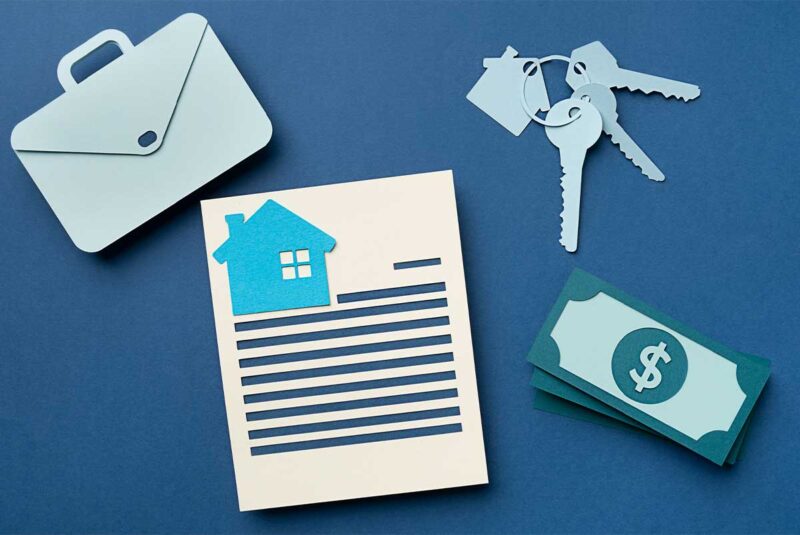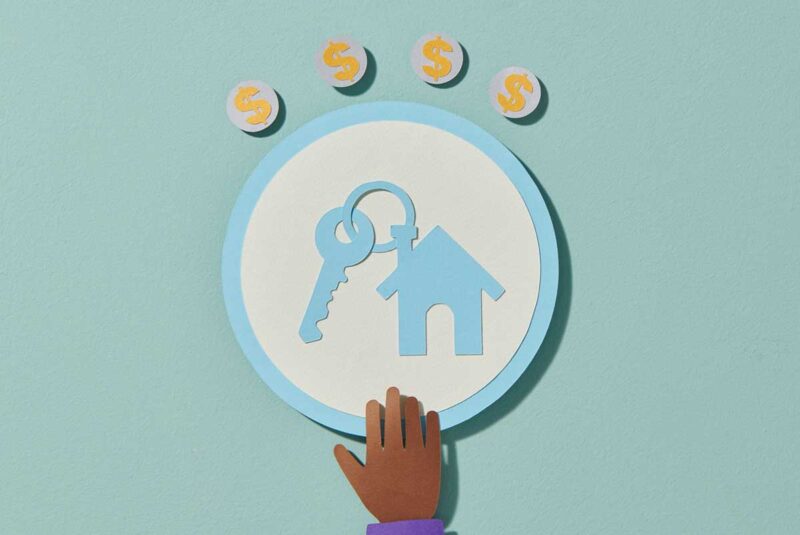Ready To Buy a Home?
Get Approved to Buy a Home
Rocket Mortgage® lets you get to house hunting sooner.
It’s all nervous giggles and sweaty palms as you iron out the last few details of owning your dream home. After the offer is accepted and you sign on the dotted line, those keys drop into your palm, and you’re ready to step over the threshold.
But let’s rewind to that dotted line and, cough, the mortgage contract. Do you plan on reading every sentence of each closing document? (Be honest.)
Now would be the time to learn what that final document – the mortgage note – is all about and why it’s important.
What Is a Mortgage Note?
A mortgage note is a legal contract that outlines the details of your mortgage loan. It can be issued by banks, financial institutions and homeowners offering owner financing.
A mortgage note includes:
- How much money you borrowed
- The size of your down payment
- The interest rate on the loan
- The terms of the loan (length of the loan, fixed versus variable interest rate)
- Payment due dates (weekly, biweekly or monthly)
- Penalties or fees (prepayment penalties, missed payment fees, etc.)
When you sign your mortgage note, you’re using your property to secure the loan. That means your home acts as collateral for the loan.
The mortgage note is filed with your local government and confirms that the lender has a lien on your home until you pay off your mortgage.
The lien allows your lender to foreclose on the home (the legal process of a lender repossessing and selling your home) if you can’t make your monthly mortgage payments. The mortgage note will tell you which scenarios will enter your loan into default, including the specific number of missed payments or other violations.
The mortgage note protects both the lender and the borrower. Without the mortgage note, the borrower wouldn’t be legally obligated to pay the lender back.
The borrower benefits in two ways. First, they know what’s expected to keep the loan in good standing. And second, because everything is outlined in the mortgage note, they know what their interest rate is, what the fees are and how they’re triggered. If there are any surprise changes, they can be appealed by the borrower.
A mortgage note also goes by several other names, including promissory note, house note or borrower’s note. Some states refer to a mortgage note as a deed of trust.
While the mortgage note and deed of trust are somewhat interchangeable, a deed of trust is different in significant ways:
- A deed of trust involves three parties: the lender, the borrower and a trustee. A mortgage note only involves two parties: the lender and the borrower.
- A deed of trust allows the trustee to begin the foreclosure process without having to go to court. This is known as nonjudicial foreclosure. With a mortgage note, a lender must sue through the court system to start the foreclosure process. This is known as judicial foreclosure.
Mortgage notes and owner financing
Owner financing happens when an owner sells their home and finances the purchase for the buyer (think: gives the buyer the money). In this type of situation, a mortgage note is almost always used. The owner issues the mortgage note to the borrower.
Typically, owner financing is offered to buyers who don’t qualify for other types of mortgage loans. It may be due to their credit score, down payment amount or high debt load. Homeowners often charge higher interest rates than a bank or other lender to offset their risk.
Owner-financed mortgage notes are structured very much like conventional mortgages. The borrower makes monthly mortgage payments that include interest.
There are pros and cons for both the buyer and the seller with this type of financing. It’s recommended that you review with a financial professional and perhaps an attorney before signing an owner-financed agreement.
What’s the Difference Between a Mortgage, a Promissory Note and a Mortgage Note?
Let’s clarify two terms: promissory note and mortgage note. A promissory note can be written for any type of loan. But when it’s written for a real estate transaction, it’s known as a mortgage note.
Mortgage and mortgage note are related terms, but they’re not quite the same thing. The difference between a mortgage and a mortgage note is in the details.
- A mortgage note is a legal contract that contains all the vital information of a loan. It’s essentially a written promise that the borrower will pay back what they owe.
- The mortgage is the loan (aka the money you borrowed) that’s secured by an asset – the home or property.
Who Holds the Original Mortgage Note?
The borrower doesn’t own the original mortgage note at the outset. In fact, the borrower won’t own the mortgage note until the loan is repaid. Technically, the owner of the mortgage note owns the mortgaged property.
Ownership of the mortgage note might change hands, but it won’t impact the borrower. Mortgage notes can be sold, and they are often sold to real estate investors.
Regardless of ownership, the borrower must continue to pay according to the loan’s repayment schedule. At the end of the repayment term, the borrower gets the original mortgage note.
Can Mortgage Notes Be Transferred?
A mortgage note can be transferred or sold without the borrower’s permission; it’s a very common practice.
Banks often transfer mortgage loans to other financial institutions to free up cash so they can offer more loans. Banks frequently bundle mortgages into packages and sell them to real estate investors.
If your mortgage note is transferred or sold, it won’t affect your mortgage terms. You’ll continue to make payments to your new mortgage servicer until the entire balance is repaid.
To be on the safe side, check the ownership of the new note to make sure it was transferred and isn’t an instance of fraud.
When a borrower defaults
If the borrower defaults on the mortgage, the lender may start the foreclosure process.
Defaulting on a mortgage and going through foreclosure can cause you to lose your home, and it can ruin your credit. To avoid this scenario, reach out to your lender as soon as you think you won’t be able to afford your monthly mortgage payments. Your lender can help you find a solution, like a new payment plan, a loan restructure or forbearance.
When a borrower prepays
If the borrower prepays their mortgage, the owner of the mortgage note will collect less interest. Prepayment penalties are meant to encourage borrowers to pay off their loans according to their repayment schedules.
If your mortgage note comes with a prepayment penalty clause, do a cost-benefit analysis to see if paying your loan off early is worth what you’d spend on prepayment charges.
What Happens to a Mortgage Note When the Borrower Pays Off the Mortgage?
When a borrower pays off their mortgage, they get their original mortgage note from the note holder. At that point, the borrower officially owns the deed to the property.
If the borrower refinances, the original lender is paid off. A new refinance note is created and the borrower makes payments to the new lender.
How Do You Get a Copy of Your Mortgage Note?
You get a copy of your mortgage note when you close on your mortgage loan. Keep that copy on file so you can keep track of when payments are due or keep track of any prepayment penalty triggers.
If you need another copy, you can:
- Search for one in your county’s records department
- Contact the local registry of deeds
- Get a copy from your loan servicer
If your mortgage note is sold to another lender, you’ll be notified of the transfer and you might get a copy of the original mortgage note.
On That Note …
Congratulations! You can confidently describe what a mortgage note is to anyone who’s willing to listen or needs to know the answer. Your mortgage note is not a document that should remain unread or skimmed. It’s important. There’s a lot of information in there that can help you stay on track with your mortgage.
Get approved to buy a home.
Rocket Mortgage® lets you get to house hunting sooner.
The Short Version
- A mortgage note is a legal contract that outlines the details of a mortgage loan, like the interest rate, payment terms and loan length
- The note holder owns the mortgage note until the borrower pays off the mortgage
- A mortgage note can be issued by banks, financial institutions and homeowners who offer owner financing




